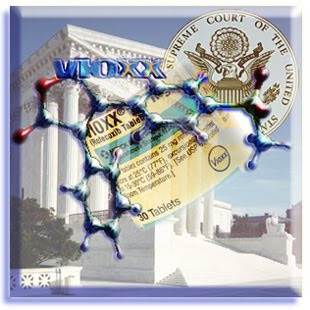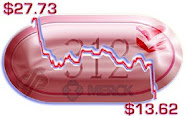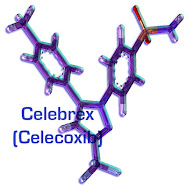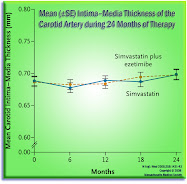First, there is the facet that refracts cool blues, to royal purples -- the rights (and obligations) of a branded innovator (Merck) seeking to recoup the undoubtedly billions of dollars invested in a proprietary drug development program -- even in the poorest, most disease afflicted nations on Earth. Then there are the warm oranges, which stray into angry reds -- the health ministers of India (and their bretheren, the local patent examiners), seeking to provide life-saving, but affordable diabetes management medications to all of India -- the nation with very nearly the highest "burden of the disease" index -- on the planet. There are more than 30 million diabetics in India (likely doubling, by 2030) -- and the bulk of those routinely die of the disease, for lack of any affordable care.
In addition, as we rotate the diamond in the sunlight -- we see soft pinks, fading into pale, almost translucent golds. . . these are the World Trade Organization, and its Doha Declarations, which purport to allow poorer nations, via TRIPS, to assert an "emminent domain" of sorts, over needed IP for humanitarian, life-saving goals. There is an ongoing global debate, on that topic -- which underlies all these Indian IP disputes. Will the nation simply "confiscate" medical IP, in order to save the lives of tens of millions of their citizens? We shall see.
Finally -- in a pulsating glow, from the heart of this highly polished carbon crystal -- always and forever -- is a deep, deep green: money. Not all (and perhaps not even most) of the actors here do so from a charitable point of view: in fact, there is some competent evidence that Glenmark will charge a nearly as exorbidant price for the "generic" it seeks to make -- in other nations, around the world, as Merck does. Afterall, in the end, there are literally tens of billions to be won, via slight shifts in regulatory attitudes, and in patent court invalidation proceedings -- which, by their terms, might allow Glenmark various export rights. Here, MSD India, Merck's local affiliate, is awaiting the ruling of a high court in Delhi, which may find that Merck's patent on sitigliptin does not cover the phosphate polymorph of sitagliptin. Should that ruling be handed down, Glenmark, and all Indian manufacturers, Sun and Lupin included, could sell the "genericized" version -- at any price they choose. [Here is some of the much earlier 2013 background, on it all.]
So it is with great interest, that I note that The Times of India is reporting overnight that Merck's Indian affiliate has agreed to mediate the patent spat on Januvia® in
 India. It is likely to lead to a settled set of payments -- from Glenmark, to Merck -- a sort of small commission, on sales of generic sitagliptin phospate polymorphs. Note that the story itself recites the Glenmark's price is only 30 per cent cheaper than Merck's -- and the WHO estimates that the price of most life saving medicines need to be 99 per cent cheaper than US retail, to be affordable to the vast swath of diabetes sufferers, in India. Here's a bit -- do go read it all:
India. It is likely to lead to a settled set of payments -- from Glenmark, to Merck -- a sort of small commission, on sales of generic sitagliptin phospate polymorphs. Note that the story itself recites the Glenmark's price is only 30 per cent cheaper than Merck's -- and the WHO estimates that the price of most life saving medicines need to be 99 per cent cheaper than US retail, to be affordable to the vast swath of diabetes sufferers, in India. Here's a bit -- do go read it all:. . . .In the long-winding patent battle on a widely-prescribed diabetes drug, Januvia (sitagliptin), multinational company Merck (MSD) has sought a settlement to end the dispute with generic company, Glenmark on the blockbuster drug. Last year, US-based Merck's subsidiary in India dragged Glenmark to court, seeking a stop on the sale of a more affordable version of its diabetes drug, Januvia, joining the list of MNCs engaged in turf wars with generic companies in the country.
The MNC firm had earlier sought an injunction against Glenmark marketing the generic version of its diabetes drug. Glenmark priced its diabetes drug last year around 30% cheaper than Merck's Januvia, where the savings to patients could be nearly Rs 5000 a year. . . .
Also recall that Merck has agreed with Sun Pharmaceuticals in India -- to the effect that the latter shall be allowed to make an "authorized" generic version of Januvia for local in-country markets. I will try to discern whether Merck still intends to help Sun undercut the Glenmark offering in India -- as the mediation progresses. But I now think, since Merck itself volunteered to mediate the dispute -- Merck had made a calculated assessment that it was likely to lose the patent fight, in the Inidan courts -- or win, and seek the India Health Ministry grant a TRIPS "compulsary license" to the drug in India.
I suppose this also signals Mr. Frazier's disagreement with Pfizer's chairman -- as the latter is the PhRMA chair at the moment as well: Ian favors a "get tough" policy with INdia -- while Merck is now clearly being conciliatory. So it goes, over my coffee & banana, on a warm gray Saturday morning.


















No comments:
Post a Comment